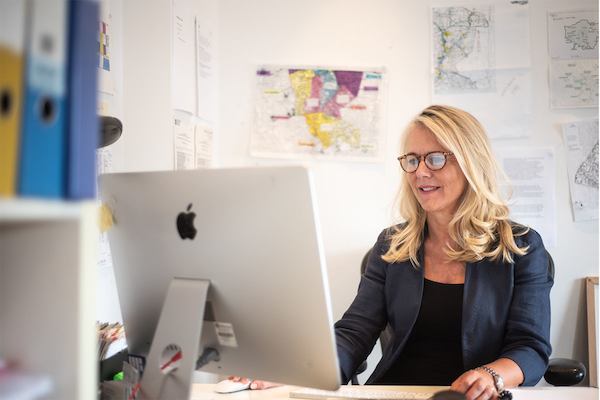That reframing of the default has led to businesses completely rethinking what is possible. Board meetings, virtual conferences, online collaboration, water cooler conversations – all happening from people’s homes. Last week the market valuation of the video conferencing platform Zoom surpassed all US airlines combined.
This isn’t the situation any of us want to be in, and for all of our mental and physical wellbeing we need to beware the ‘curse of the laptop warrior’. Some good may come of this though. This might lead to greater understanding for people who need to work flexibly in normal circumstances. Many more of us are now working carers. School and nursery closures mean that more are juggling work and childcare at the same time. Some of us are caring by phone for older friends and relatives in self-isolation or for others who are ill at home. We are physically but not socially isolating.
Many are working from home, but not everyone.
The rules have changed, mindsets have shifted, and technology has helped, but the truth is that most are only just managing, trying to keep businesses or essential services going. Working from home is possible if the work is online but many roles are still impossible to do remotely. Many workers do not have a work email address, let alone the equipment to access it. Less than one-in-ten of those in the bottom half of earners say they can work from home.
There are those who are working more than ever. People keeping the country running and the rest of us safe in lockdown: key workers in health and social care, front line public services, previously overlooked essential roles making sure we can have food in our homes and the lights kept on.
There are many others not able to work at all, those with jobs on hold, waiting to come out the other side, and a million new claimants to Universal Credit.
How can we make flexible working work?
We know that flexible working matters to people of all ages and is one of the pillars of becoming an age-friendly employer. Retired people say that they miss the social interaction of work more than anything else. In going into sudden lock down we need to make sure that people who are doing the right thing in self-isolating and working from home remain connected to the meaning, purpose and social interaction that they might get from work. We are trying our bit at the Centre for Ageing Better. We have a tradition where the whole organisation downs tools for half an hour every week at Fika to talk about something other than work over coffee. We’ve been able to keep this going virtually from homes across the country.
With this sudden change employers need to know what they can do to help. Over the last year, we have been working with Timewise and leading employers to find out why older workers want to work flexibly, and how employers can support them. These learnings are invaluable in the current situation and Timewise have set out some of the key findings from our joint pilot that will be published later this year. These are practical steps that HR, line managers and colleagues can take to support older workers in the current lockdown and beyond.
The truth is that being mandated to work from home is no more flexible than being mandated to work from an office. It’s important that we all take the best practice of good flexible working to make the most of the current situation and use what we’re learning during this time to improve flexible opportunities in the long term.
A few short months ago Timewise launched their 2020 Power 50 list of leading flexible workers. Now there will be more than a few additions to the list, as employers and workers adapt to the new world of flexible working.


